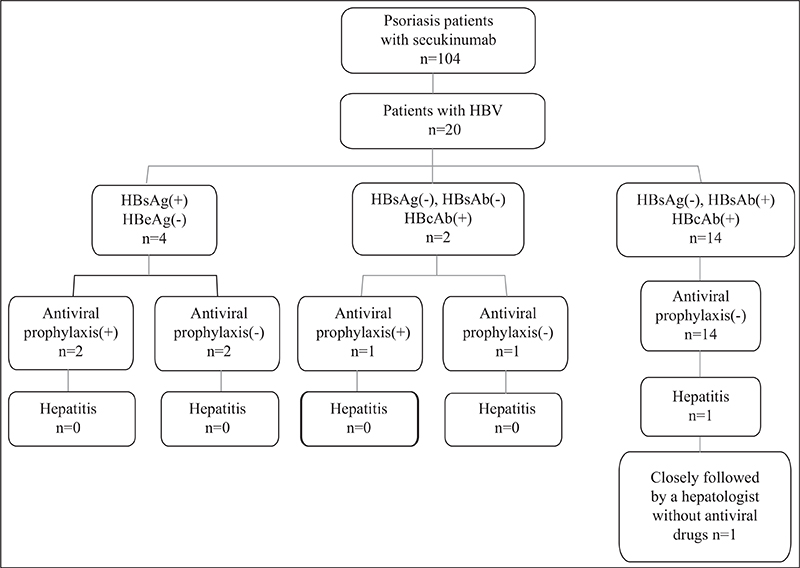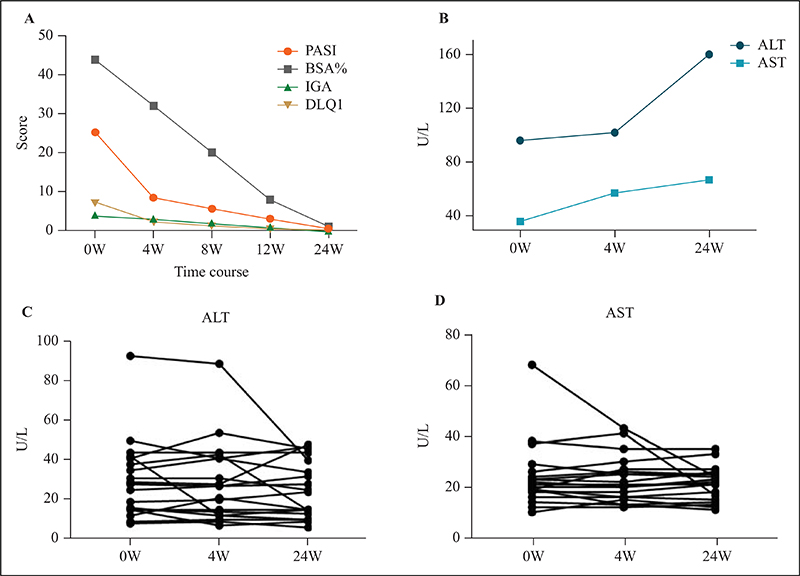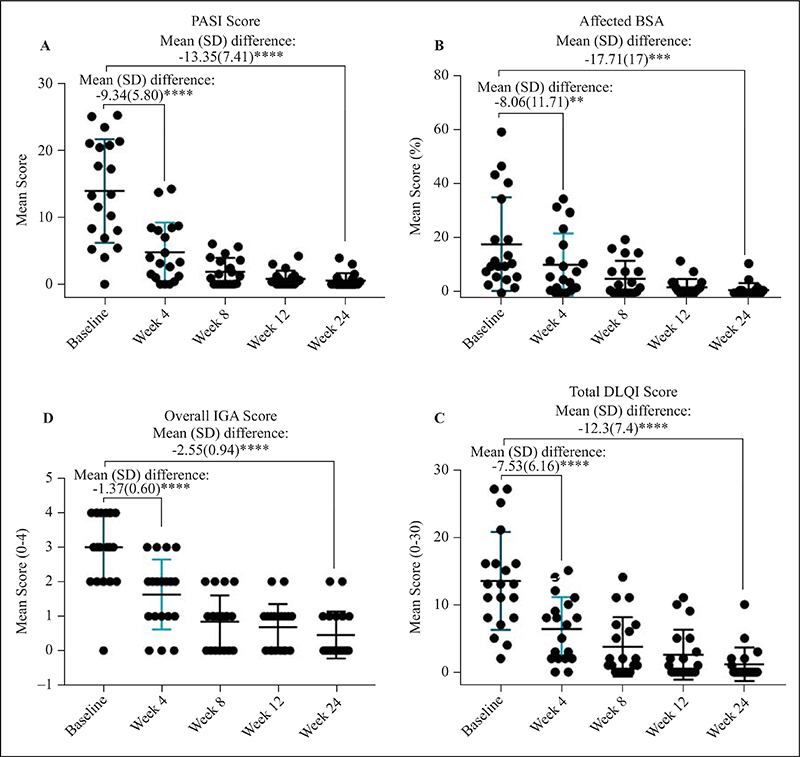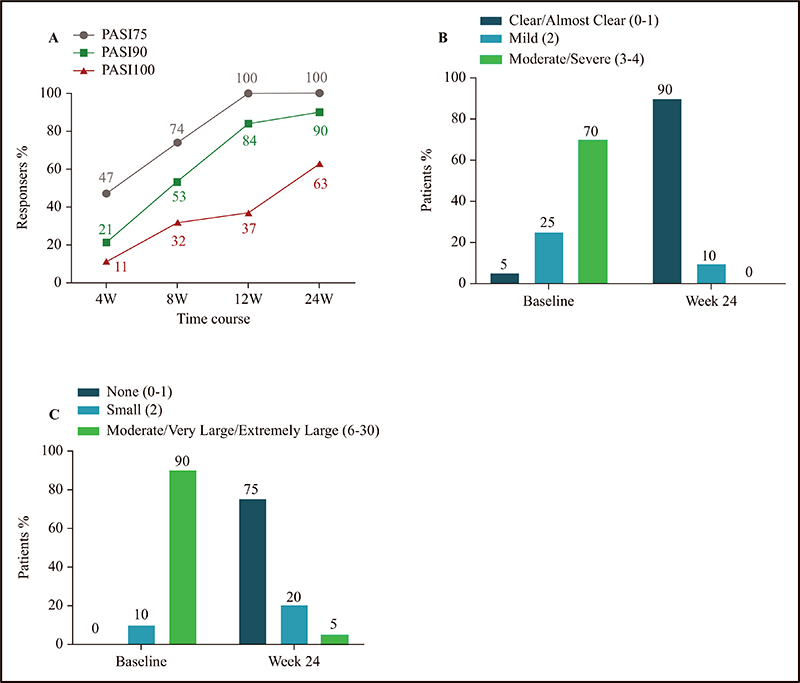European Journal of Dermatology
MENUSafety and efficacy of secukinumab in psoriasis patients infected with hepatitis B virus: a retrospective study Volume 32, numéro 3, May-June 2022
- Mots-clés : psoriasis, hepatitis B virus (HBV) infection, China, secukinumab, safety, efficacy
- DOI : 10.1684/ejd.2022.4263
- Page(s) : 394-400
- Année de parution : 2022
Background
The burden of hepatitis B virus (HBV) infection in China is high. The safety and efficacy of secukinumab in psoriasis patients with HBV infection have not been fully elucidated.
Objectives
To investigate the safety and efficacy of secukinumab in psoriasis patients with HBV infection in China.
Materials & Methods
In this retrospective study, 20 psoriasis patients with HBV infection were identified, all of whom had been treated with secukinumab for ≥24 weeks
Results
Four patients had chronic inactive HBV infection, two patients had occult HBV infection, and the other 14 patients had resolved HBV infection. The HBV-DNA load and HBV markers measured at baseline and Week 24 showed no viral reactivation. Nineteen patients showed normal levels of liver enzymes after 24 weeks of therapy. However, one patient with resolved HBV infection and fatty liver with elevated baseline liver enzymes experienced hepatitis, with negative HBV load at baseline and Week 24. All patients showed a significant improvement in the Psoriasis Area and Severity Index (−13.35 ± 7.41: p < 0.0001), per cent of body surface area (−17.11 ± 17: p = 0.0002), Investigator Global Assessment (−2.55 ± 0.94: p < 0.0001), and Dermatology Life Quality Index (−12.3 ± 7.39; p < 0.0001)
Conclusion
Secukinumab showed good efficacy in psoriasis patients with HBV infection. Chronic, inactive, occult and resolved HBV infection may not increase the risk of hepatitis during secukinumab treatment. Patients with poor baseline liver function, without any intervention during secukinumab treatment, may experience hepatitis. Periodic monitoring with HBV markers, HBV-DNA load, and serological liver function tests is necessary during secukinumab treatment





